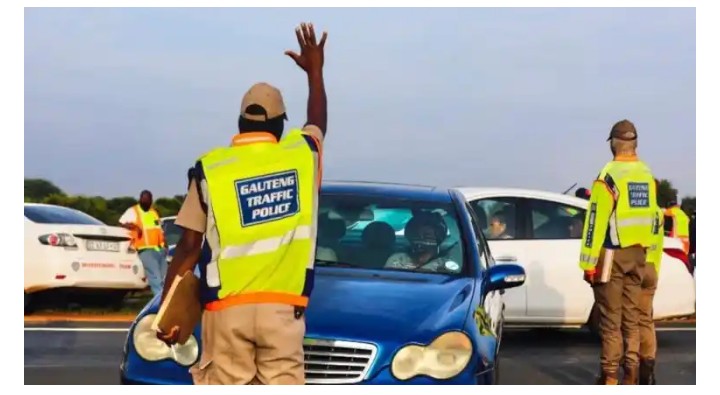Driving License: How new AARTO laws are set to strip South African roads of reckless wheels

New AARTO policy to affect driving license for South Africans. Photo Credit- EWN
As the festive season looms, South African motorists are staring down a seismic shift in how they navigate the nation’s pothole-riddled roads, one that could swiftly turn a forgotten parking ticket into a revoked license. The impending rollout of the Administrative Adjudication of Road Traffic Offences (AARTO) Act, slated for full national implementation on December 1, 2025, promises to overhaul the creaky 1977-era system that’s long fostered a culture of fine-ignoring apathy. No longer will drivers dodge consequences with impunity; instead, a demerit points regime and automated blocks on essential services will enforce compliance with surgical precision. Barry Berman, Chief Executive Officer of Fines SA, sounds the alarm: “It introduces demerit points, licence suspensions, and stricter penalties for non-payment. With millions of fines issued annually and fraud already on the rise, the stakes for motorists and businesses are high.” In a nation where traffic violations are as common as minibus taxis, this isn’t just reform, it’s a reckoning for the unruly on the wheel.
From Pilot to Nationwide: A 15-year system in the Making
The AARTO Act isn’t some knee-jerk policy; it’s the culmination of over 15 years of refinement, including a pilot program that’s been honing its edge in Johannesburg and Tshwane. “The pilot has now been fine-tuned. I do believe it’s ready and, yeah, all systems are go for 1 December,” Berman affirms, highlighting the shift to a centralized national platform backed by multiple technology partners. Gone are the fragmented municipal enforcements that allowed fines to gather dust; in their place, a unified digital backbone ensures infringements cascade into enforcement orders with ruthless efficiency. For the average commuter juggling fuel prices and e-tolls, this means a rude awakening: ignoring a speeding ticket won’t just sting the wallet, it’ll lock you out of life’s basics, from renewing a license disk to buying or selling a vehicle via the eNATIS system. Berman warns of the complacency trap: “There’s been apathy for many years with traffic fines in South Africa… Motorists are now going to get a very big surprise.”
How quickly points can lead to license loss
At the heart of AARTO’s bite is the demerit points system, rolling out fully in 2026 but already casting a long shadow over December’s launch. Accumulate 15 points, and your license vanishes, simple as that. Berman lays it bare: “You would be surprised how quickly you can hit the limit before your licence is taken away. You can lose a minimum of 1 point per infringement up to a maximum of 6 points.” Minor slips like running a red light might nibble one point, but egregious offenses hit harder: unlicensed driving or an unlicensed vehicle? That’s a whopping six points in a single swoop. For delivery drivers, taxi operators, or sales reps whose livelihoods hinge on four wheels, this is existential. “There are quite a few categories where you can lose 6 points in one go, and that’s going to create a major issue for those who depend on driving for their livelihood,” Berman cautions. The system’s genius or tyranny, depending on your view, lies in its automation: no more cat-and-mouse chases; just a digital guillotine dropping when thresholds are breached.
Teething troubles and tech safeguards: Will the system hold?
Optimism tempers the dread, with Berman expressing confidence in the backend tech: “They have engaged with multiple technology partners who are assisting on the back end. I’m sure there will be some teething problems, but we’re pretty confident that they’ve ironed out most of the glitches.” Unlike the old Criminal Procedure Act (CPA) patchwork, AARTO’s national scope sidesteps municipal bottlenecks, promising smoother sails. Yet, skeptics whisper of rollout hiccups, glitches in eNATIS integrations or overwhelmed hotlines, as the system absorbs millions of annual fines. For businesses, the ripple effects could be seismic: fleet managers facing mass suspensions might grind logistics to a halt, while everyday Joes discover mid-commute that their license renewal is frozen. It’s a high-stakes gamble on technology’s promise to tame South Africa’s chaotic roads, where over 14,000 fatalities mar 2024’s stats.
Fraud in the fast lane, ghost fines and digital dodges
Even before liftoff, shadows loom in the form of scams preying on the transition’s chaos. “Fraudsters are already circulating so-called ghost fines,” Berman reveals, urging vigilance against phishing emails and dubious links from unfamiliar sources. “What we are advising motorists to do is to be very cautious before they click on any links from companies that they’ve never heard of or from dodgy email addresses.” As AARTO digitizes enforcement, cybercriminals circle like vultures, fabricating violations to extract payments via fake portals. This underbelly threatens to undermine trust in the new regime, turning a tool for accountability into a vector for victimization. For drivers, the lesson is clear: verify through official channels like the AARTO website or Fines SA portals, lest a bogus ticket becomes the real roadblock.
Conclusion
As December dawns, AARTO stands poised to reshape South Africa’s driving culture—from a free-for-all to a points-driven discipline. Berman’s clarion call cuts through: adapt or surrender your keys. For the 20 million licensed motorists, it’s a wake-up to safer habits; for the state, a bid to slash accident rates and recoup billions in unpaid fines. In the end, these laws aren’t just about punishment—they’re a blueprint for roads where compliance saves lives, one demerit at a time.

